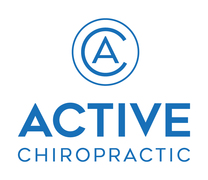Health agency says to prepare for second Covid-19 wave

12 July 2022, 5:06 PM
 Dr Carol Atmore says Covid-19 is still with us, along with winter colds and the flu.
Dr Carol Atmore says Covid-19 is still with us, along with winter colds and the flu.The agency responsible for delivering primary health care in the Southern region is advising people to prepare for a second wave of Covid-19 cases.
As we come into the peak of the flu season, Covid-19 case numbers are rising once again, and they are likely to stay high for the next couple of months, the WellSouth Primary Health Network says.
“We want to take this opportunity to remind people how to protect themselves and their whānau against Covid-19 and ensure the community is well prepared for this second wave,” WellSouth medical director Dr Carol Atmore said.
Ensuring you are fully vaccinated and boosted gives you the best protection against Covid-19 and can often mean if you do test positive you will only experience mild symptoms, she said.
“All Covid vaccinations are free. So, check if you are up to date for your Covid vaccinations for you and your family, as new recommendations have been made recently,” Carol said.
“Secondly, remember that masks are important in keeping us all safe. Masks continue to be an important defence against the spread of Covid-19, particularly indoors, in places with poor ventilation, or where physical distancing is difficult.”
Thirdly, Carol said, keep using hand sanitiser or wash your hands with soap and water regularly to reduce the spread of germs.
“We are all wishing that Covid was over, but the reality is that it is still with us, and the winter colds and the flu are here as well. So, we all need to keep doing the basics well - get immunised for Covid and influenza, keep wearing masks indoors, sanitise our hands, and stay home if we are sick.
“This is the best way to keep ourselves, our family and friends, and our communities as healthy as possible over the next couple of months,” she said.
New vaccine recommendations
The new recommendations for Covid-19 vaccines are:
Everyone aged five and over can receive two doses of the vaccine. A booster is available six months after the primary course for those aged 16 or 17, and three months after for those aged 18 or over.
A second booster was recently introduced for those at high risk of severe illness, anyone aged 50 and over, and health and disability workers over the age of 30.
If you are 16 or older and are eligible for the free flu immunisation you are probably eligible for the second Covid-19 booster – talk to your general practice team if you are unsure.
You must wait at least six months between your first and second booster shot.
If you have had Covid-19, you should still have the booster, as it will protect you further, and you need to wait three months after you have tested positive before you have any Covid vaccination shots.
You can get your Covid-19 vaccinations at your general practice and some other sites. Check what is available here or contact your GP.
Advice on being prepared
Well South also advised people to be prepared in advance (in case they get sick and need to self-isolate) by having a good supply of food, water, and hygiene products; and a supply of any regular medication along with medicine to manage your symptoms like paracetamol and cough lozenges.
If you become unwell, it is important that you stay home and test, even if your symptoms are only mild. If the test comes back negative, you should stay home until you are symptom-free, so we do not spread other winter illnesses.
If the test comes back positive you are required to self-isolate for 7 days. If a member of your household tests positive for Covid, you must isolate at home for 7 days and get tested (Day 3 and Day 7 if you are asymptomatic, and immediately if you develop symptoms).
Rapid antigen tests (RATs) are provided free of charge to anyone with symptoms or who is a household contact of a Covid positive case. Order RATs online for collection here. When you complete a RAT you should report both positive and negative results via MyCovid Record or by calling 0800 222 478 and choosing option three.
PHOTO: Supplied





